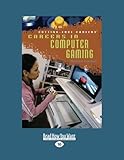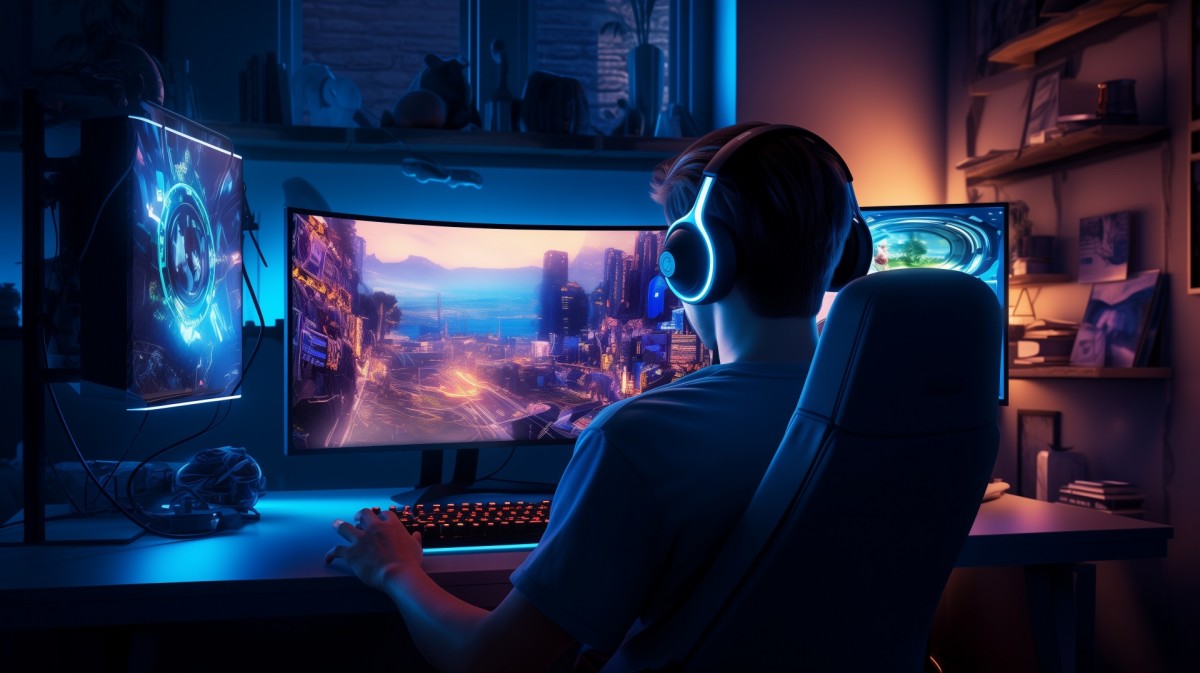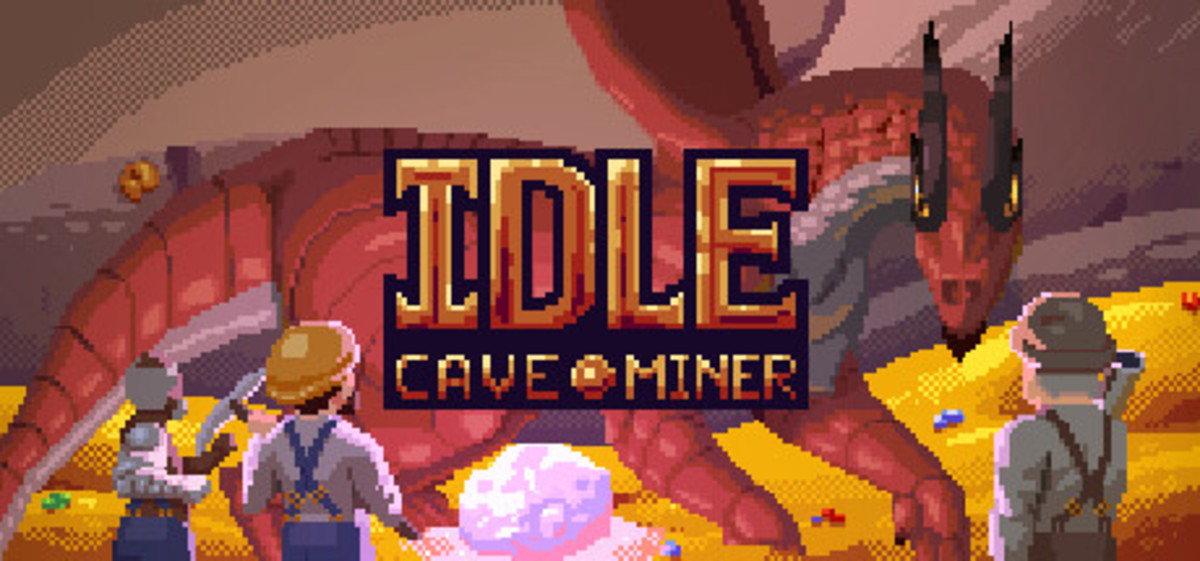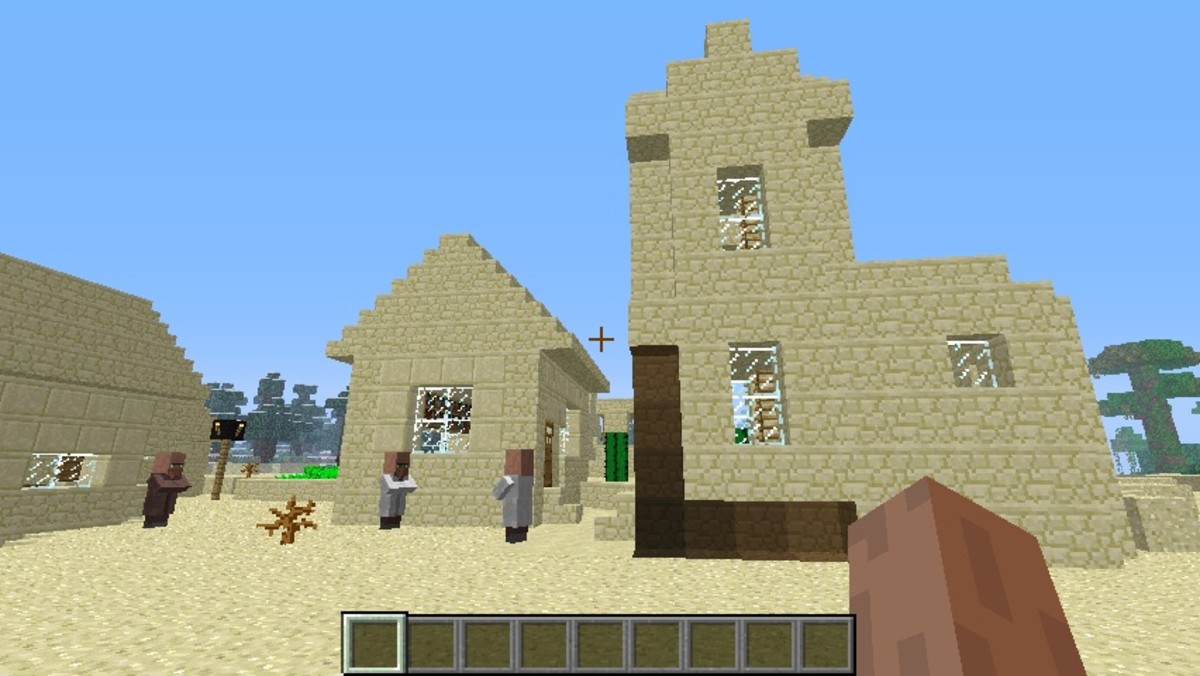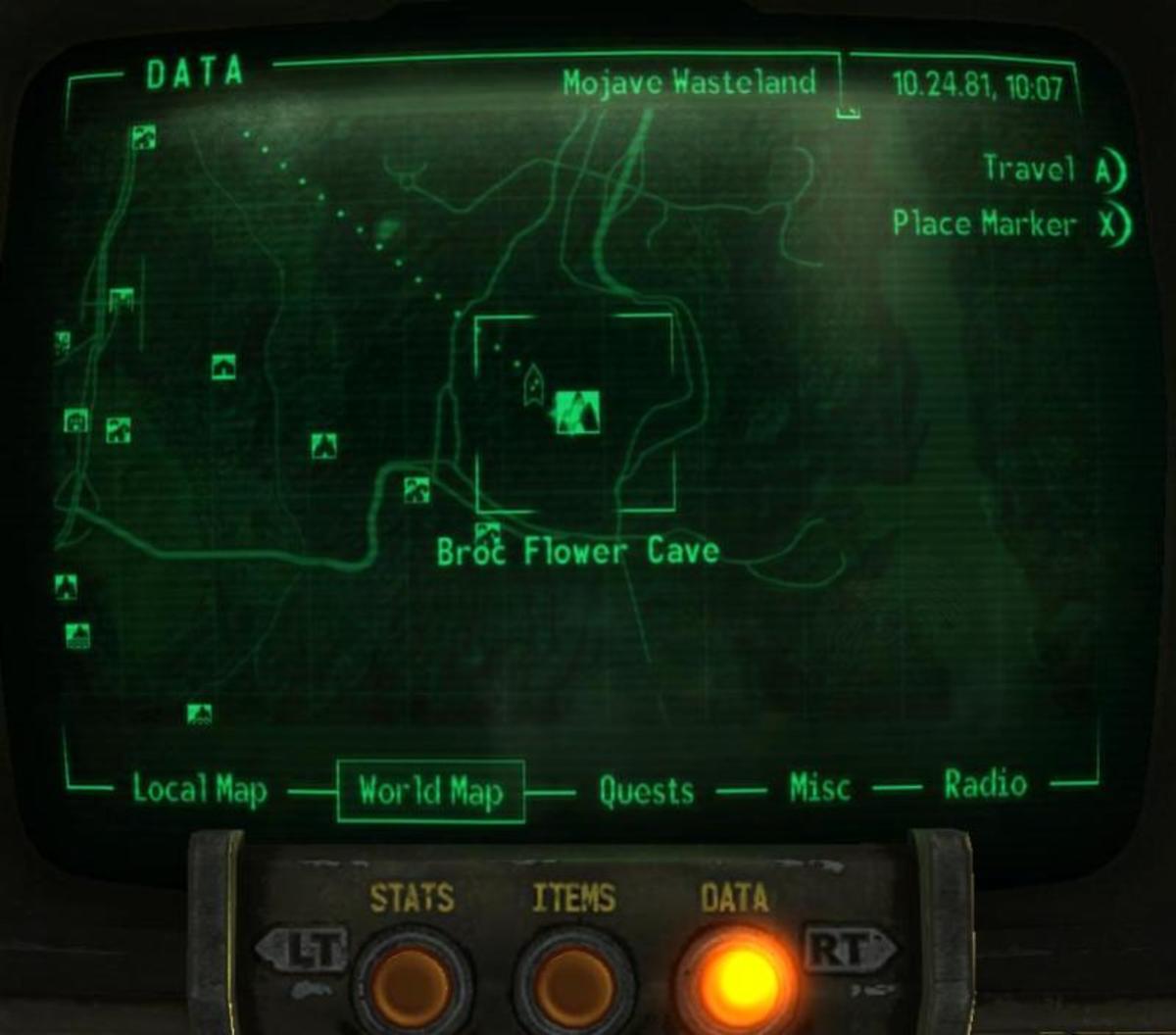Careers in the Gaming Industry

Interview with Brent Knowles - Former BioWare Game Designer
Brent Knowles is a writer, programmer, and game designer.
He has been living in Edmonton, Alberta for the last ten years, and is a graduate of the University of Alberta's computer science program. He worked at the role-playing game studio BioWare for ten years (Baldur's Gate 2, Neverwinter Nights, Dragon Age), during most of which he was a Lead Designer/Creative Director.
Now he writes full time.
He has been published in a variety of magazines including Neo-Opsis, On Spec, and Tales of the Talisman.
In 2009 Brent placed first in the third quarter of the Writer's of the Future Contest with his story 'Digital Rights'.
He is also a member of SF Canada: Canada's National Association for Speculative Fiction Professionals

The Kid in Us All
A lot of kids, hell, even adults, dream of a career in the gaming industry. The problem is, some may be dazzled by the finished products but unable to conceive of the work that goes into creating that awe-inspiring storyline or incredibly flexible game-play.
So the best way to learn, is to ask Brent Knowles, someone who has been there and done that.

First Gaming Experience
Joy: How old were you when you began gaming? Where did you play it? Can you remember the first game? Did you ever have to sneak to play video games when you weren't supposed to be playing?
Brent: Don't know how old I was but definitely under ten when my parents bought our first game console.
The very first game? Can't remember... the first game I do remember playing is Smurfs for the Adam console... after that it was the Super Marios and Phantasy Star and such until I had a PC. Then I was into all the titles from Sierra like King's Quest and Space Quest and so on.
My parents were okay with my computer gaming... I think they were more concerned with my playing pen and paper roleplaying games.
Gaming Geek?
Where??
Me: Did you just 'get it', aka, were you a gaming geek from day one? What drove you to keep playing video games?
Brent: Gaming was actually quite social for me as a kid, so we'd have a few of us over and play D&D and then a couple of us might stay up late playing a console game we had rented. So within my group of friends gaming was just what we did.
I like exploring 'other worlds'... whether in computer gaming, pen and paper gaming, or through my writing, so I think if anything I was hooked on that... the exploring... and games are one way for me to explore.

Gaming Your Way to a Career
Me: When did you decide that a career in gaming may be for you? Did you have any idea of what it would entail or did you just have a blind rage-fueled urge to complete the mission regardless of what it took? Do you ever regret the decision?
Brent: I started building my own games almost as soon as I started playing them. The Adam console had a programming language and I built a few RPGs on it and then after I bought a PC I got more into programming. It was mostly a hobby but one I applied myself to with as much passion as I did my story writing.
I actually applied to Sierra before I started college but I was declined an interview... after that I think I assumed the gaming industry would be too difficult for me to break into. I entered college in pursuit of a computing science degree but the gaming industry was not my target. I just wanted a degree I knew would guarantee me a job after graduation to support my ambition to become a writer.
After graduating with my Bachelors of Computing Science BioWare was among a large number of companies I sent applications to. I wasn't overly hopeful to be honest.
No regrets on the decision to enter the industry... it was an amazing experience.

The Path to Greatness
Me: What educational path did you pursue to secure this type of job? How long did it take? Was the education itself difficult for you? Did you shed blood, sweat, tears, or even 01110101's? If so why, if not why?
Brent: I obtained a computing science degree. The degree was a bit of a struggle. I enjoy coding but not necessarily all the math behind more advanced computing science topics -- I'm terrible at math! That being said, the cool thing with a more general university degree, rather than a specialized game development program, is that you are exposed to many other subjects... and being broad minded is a great asset for a game designer. My anthropology, history, and biology classes I think helped prepare me for a games career as much as any of the programming classes did.
Even with the degree though I lucked out a bit in landing my job with BioWare.
I was very familiar with the Dungeons and Dragons ruleset and I had written several stories and articles, one of the articles being published in the roleplaying magazine Dragon. BioWare needed a designer who could program, write dialog and understand Dungeons and Dragons. I think all of my skills and interests combined to give me an edge over other applicants.
So luck played a factor but I helped pave the way towards that luck by writing hundreds of thousands of words of fiction, by examining and understanding game mechanics, and by giving myself a solid base in writing code.
For those considering a career now... at this point to get a job with a major games developer like BioWare I think a Bachelors degree or equivalent is a necessity, no matter the position. But equally necessary is passion. You have to really enjoy what you are doing and more importantly, you have to thrive doing it. Build your own games in your free time, mod games, and interact online with other gamers... discussing games and gameplay and where you think the industry is heading (or where you think it should head). Learn!

The Best Job Ever?
Maybe!
Me: What was the best part of working for Bioware? What was the worst or most surprising thing you found about working in the gaming industry? Can you name one OMG moment you experienced while working for them?
Brent: My coworkers made the experience at Bioware awesome. I learned so much from the writers, designers, artists, programmers and everybody else. Learning to be an effective part of a team is actually quite tricky... it involves a lot of give and take... but when the team really comes together it can be rather amazing.
Anybody entering the industry needs to be prepared for working overtime. The smaller the studio, the longer the hours I suspect. There were many exhausting nights spent in the office. The situation improved as BioWare matured as a company but I suspect there isn't a game development studio in the world that truly avoids overtime and still makes triple-A titles.
One of the earliest OMG moments was sitting with a group of designers right after BioWare had received the contract to create their first Star Wars title -- Knights of the Old Republic. We were all sitting around a table and talking about what the core plot could be, where and when in the Star Wars universe the events would unfold and all of this stuff. I was even given Star Wars comic books to read for research. It was basically the kind of thing I'd be doing on my own time while running gaming sessions but now I was being paid for it!
On a Need to Know Basis?
If you are planning a career in the gaming industry. You Need to Know!
Me: What are the most important issues someone should understand before investing time and education into a career in this industry so that they do not create their own education fail?
Brent: For applicants entering programming or game design I strongly urge them to get a computing science degree and not go the route of a specialized game development program. A computing science degree can get you into the games industry, as long as you pair your learning with passion and a desire to self teach yourself the other aspects of game development by building your own games and modifying commercial games. And if you cannot get a job with a game company right away you can work somewhere else (and be paid well) until you find that dream job. The world is not going to run out of a need for new programmers anytime soon.
"It's time to chew bubble gum and kick ass,and I'm all outta gum. " ~ Duke Nukem
As well the overtime aspect can't be overlooked... you and your family need to be prepared for the toll that can take. And it's not just a physical toll, it's an emotional toll as well... everybody gets attached to what they add to the game and sometimes things have to be cut to meet schedules. I've seen months of my own work tossed into the bin... worse was being a manager and having to explain that I was tossing my team's work away.
The final thing I'd say is that I meet a lot of young people who think working in the games industry would be fun. It is not. You do not get to sit around playing games all day and for those who do (the quality assurance department) it can really suck. Imagine having to play the same ten minutes of gameplay for a month while designers and programmers and artists tweak. Each time they tweak it you have to run through it a few hundred times to make sure nothing broke. Not fun.

Still Gaming
Me: Do you game now? What are the last 2 games you played and why did you choose those two?
Brent: I still game, probably more so than when I was at BioWare -- working in the games industry really eats up the time you have available for gaming!
That said, most of the games I play now are games I can play with my children... basically all the Lego franchise titles, the EyePet, and such. We also play a lot of mobile games, specifically on the iPad... I think many of these titles are ridiculously clever and I love seeing how developers tackle new interfaces to create such innovative games.
The game I'm most involved with right now is Empire Avenue, the social media exchange... I consult for them but I'm also one of the original group of players from their first beta. A year later and I'm still hooked. I like that the relatively simple game mechanics -- basically buying and selling virtual shares in people -- are enhanced by social interaction and I've learned a lot about how to build a non-traditional game.
Did your experience in the gaming industry change the way you play, the way you choose your games, and how annoyed you get when you pay for crap games?
I won't pay for a crap game... I play demos first. If I like the demo I might buy the game. I've heard some companies say "please don't judge us by our demo" but that's ridiculous. The whole point of the demo, for the consumer, is to help make the decision to buy or not to buy. Don't deliver a demo that poorly or falsely represents your game... I won't buy it.
For the games themselves I am maybe more forgiving than I was before I became a developer... I understand why a beautiful game ships with only ten hours of gameplay because I know how expensive it is to produce level and character art with the high fidelity that gamers demand now. On the other hand I get frustrated with poorly thought out gameplay... giving gamers an experience that is fun and that allows them control is important to me. I don't have time for games that are too linear or rail-roaded... if I want linear I read a brilliant novel or watch a movie. When I play a game I want to play.

One Day We Will All Be 'Old Gamers'
sigh..
Me: Do you see your interest in gaming ever waning, or do you think it is more likely that while other old gents around the retirement home are playing bridge or poker, you will likely be tucked away in your room with some ancient console or a massive NASA league computer running the hottest games of 2061?
Brent: Everybody enjoys gaming, even those who don't realize it -- bridge, poker, carpet bowling... these are all games. So while I imagine there will be some card playing going on in my retirement home I also suspect there will be death matches in the lounge with elderly and active gamers sniping and flaming one another in virtual reality. Gaming will continue to evolve and gamers will evolve.
I'm hoping though that by that point I'm selling novels regularly to keep me busy!


